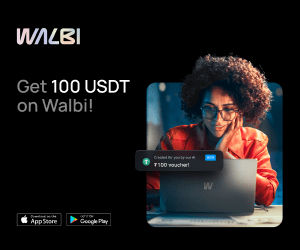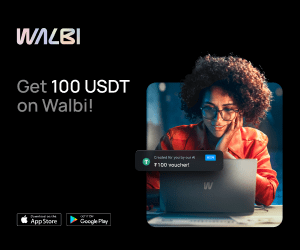All Activity
- Today
-
How do I earn by chatting on a money forum
ruskate6 replied to MikeyCrypto's topic in Crypto Money Making Discussions & [Ann]
Thanks for sharing! The points-for-posting concept is pretty interesting - reminds me of some of the crypto reward systems that were popular a while back. Getting daily login bonuses is a nice touch too. I'm always a bit cautious with "earn money by chatting" platforms though - curious what the actual payout rates are like? And how much activity you need to get to meaningful rewards? I spend most of my time on Lemonchat for casual conversations, but I might check this out if the community is active and the rewards are decent. The marketplace section sounds useful for people already into crypto/NFT trading. Has anyone here actually cashed out points successfully? Would be good to hear some real user experiences before diving in -
ruskate6 joined the community
-
I Just joined the SGC listing carnival on BingX with its 6.7M SGC prize pool. I’m watching it alongside some top gainers on Binance, $JTO is up around 7–12%, now trading at about $2.10, and $THE is showing strong momentum, up ~13.4% around $0.275. $ETH holding around $2,540 and $SOL around $150, the broader market looks bullish. It feels like mid-caps and newer tokens are getting real attention again. So events like the SGC carnival could get a nice boost from overall sentiment. Not saying it’s the next moonshot but timing looks better than random listings. Worth watching how it performs once the carnival wraps.
-
Tired of working hard to promote crypto projects only to wait days (or weeks) for your payout? EarlyEarn fixes that with instant, on-chain payouts, up to 50% commissions, and a fully transparent dashboard. 🟢 What is EarlyEarn? EarlyEarn is a crypto affiliate platform built for the new wave of Web3 marketing. It connects you to handpicked presale projects that need exposure. You promote, refer, and earn instantly—no delays, no middlemen, no drama. 🔑 Key Features: ✅ Instant Payouts All commissions are paid in real time via blockchain (ETH & SOL supported). Your earnings show up instantly—no waiting for approvals. ✅ Up to 50% Commission You can earn up to 50% of every sale you refer. The more you promote, the more you earn. ✅ Sub-Affiliate Income Build your own team and earn lifetime commissions from every sale your referrals generate. ✅ Real-Time Dashboard Track your clicks, sales, earnings, and team performance live with full transparency. ✅ Marketing Made Easy[/b] Get access to banners, promo content, and a plug-and-play affiliate link generator. No tech skills needed. 🌍 Why EarlyEarn? Powered by immutable smart contracts Transparent and trustless payout system Mobile-friendly and simple to use Backed by top-tier presale projects (curated, not junk) 💼 Who is this for? Influencers looking to monetize their community Marketers & promoters are tired of payout delays Web3 content creators, community builders, or crypto shillers Anyone who wants real earnings, real fast 🔗Join EarlyEarn Today 📣 Let your clicks pay you back. Promote smarter. Get paid faster. Join the EarlyEarn movement.
-

J.J. Edwards’ Expert Market Analysis at FenzoFx
FenzoFx replied to FenzoFx's topic in Forex News & Analysis
GBP/JPY Tests 196.4 FenzoFx—GBP/JPY is testing the 196.4 monthly high, a fragile resistance after four previous attempts. On Friday, bulls pushed higher with a long-wick candlestick, but the Stochastic Oscillator signals an overbought market. The bullish trend remains intact if GBP/JPY holds above 193.8 support. A breakout above 196.4 may target 198.3, while closing below support could shift momentum downward. -
We Love Bums (BUMS) The cheekiest coin on Solana Welovebums is a community for the ass appreciating, bum loving degens. Join the $BUMS movement and watch that ass grow to the moon. WE LOVE BUMS 🍑 A tribute to every kind of bum out there: curvy, flat, juicy, or thicc. 🍑 Let's appreciate them, meme them, and take them to the moon. 🍑 We Love $BUMS. Fun Facts about $bums 🍑 69% of men prefer $bums over financial advice 🍑 $BUMS are scientifically proven to make your portfolio thicc-er 🍑 Real men HODL $BUMS 🍑 $BUMS holders are degenerates with great taste in BUMS $BUMS. The cheekiest coin on Solana. A community where everyone can get a piece of the ass. Contract Address: 3XCw1JpWDXYWzcHZmF63QFm544DGMEpqZwKR1BgCpump Website: https://welovebums.com X: https://x.com/weloveebums Reddit: https://reddit.com/r/welovebums Telegram community: http://t.me/weloveebums




























